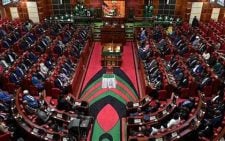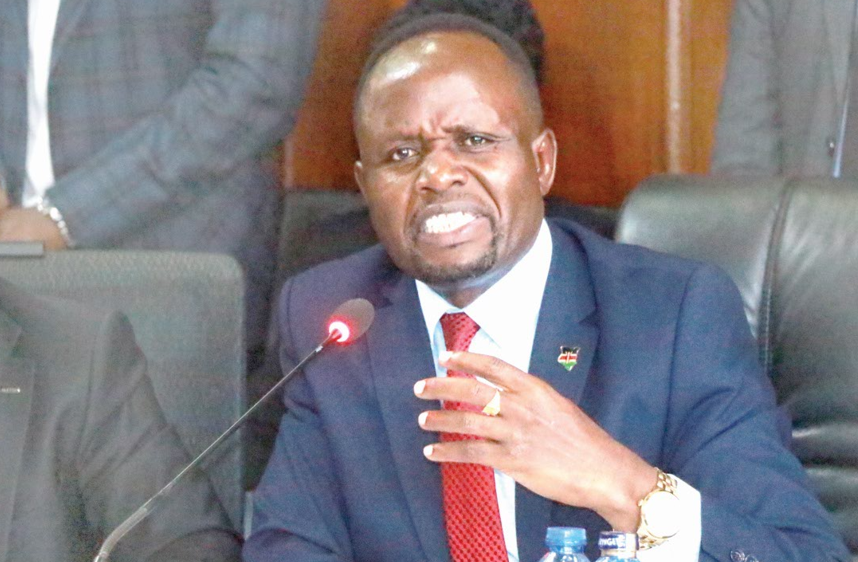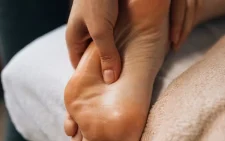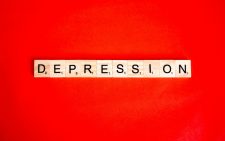Acute Organic Brain Syndrome: Man opens up about battle with rare mental illness
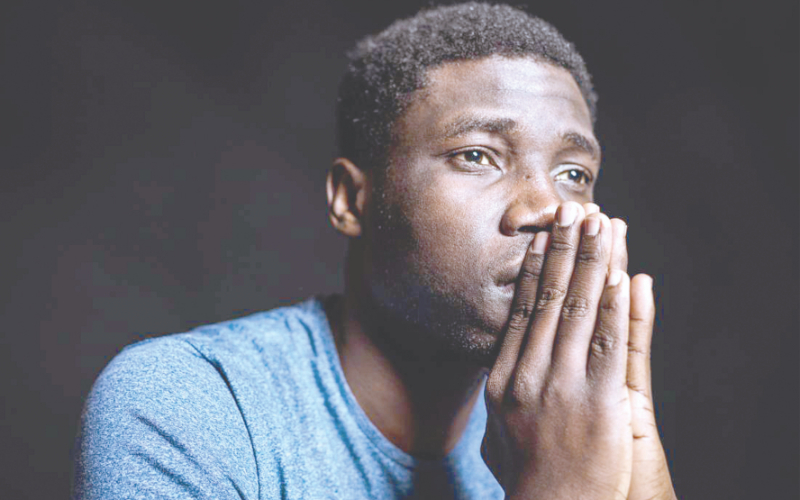
A few years ago, Ian Wekesa was this laid back gentleman, an introvert who preferred his own space and only kept a small circle of friends.
His introverted personality was so evident in his class of 49 students at Moi University in Eldoret, Uasin Gishu County, where he only spoke to his girlfriend and three of his friends.
What he did not know was that his quiet, almost moody nature was a mental illness awaiting to manifest. After life-changing double diagnosis and treatment, today, Ian speaks with such great confidence and brevity.
“My experience with the mental illness and the journey to overcome it really changed me. I didn’t know that it was possible to change from an introvert to an extrovert. I guess life is a roller-coaster and every single day is a learning experience,” says Ian.
The computer science graduate was diagnosed with Acute Organic Brain Syndrome (OBS), a rare and severe form of depression, also known as Neurocognitive disorder in December 2017 when he was just about to complete his studies at the university.
Struggle with studies
The condition paralysed his arms and feet and his speech was also affected. He couldn’t talk. “I cannot recall the details of what really happened. These are just stories I hear about my life as a child,” adds the 28-year-old, second born in a family of three.
First, symptoms of his illness began to show when he could not grasp the simplest concepts of his course.
He offers: “I have always had a passion for computers. However, the first year in campus was very challenging since I was an introvert and was really grappling to fit in. I was also struggling with my education because I found the course content to be very difficult,” he recalls.
“One of my classmates, who eventually became my girlfriend noticed this and offered to help me with understanding the concepts,” he recalls.
Everything was going well until his girlfriend started noticing Ian was not okay. He developed violent behaviour and angry verbal outbursts out of nowhere and the situation got worse every day, and she decided to inform his mother.
Rare mental illness
“My mum asked her to help me board a passenger service vehicle to Nairobi where she was waiting for me. When I arrived, she took me to Avenue Hospital in Parklands. Doctors told her that I was exhibiting symptoms of a recovering substances addict. She, however, dismissed the doctor’s assumptions, and they decided to carry out some tests, which led to the OBS diagnosis,” he recounts.
It was at this point that Ians legs and hands stiffened and he was immediately admitted and had to stay at the hospital for three weeks, under antidepressants and physiotherapy.
“I was discharged from the hospital, but there was no change. My mother and brothers had to take care of me at home.
Sessions with a psychiatrist
From the fourth month after the diagnosis, I started showing signs of recovery. My mum noticed the changes and would help me stand, walk and talk, and slowly I was able to walk without any support,” he narrates.
He still continued to see a psychiatrist who would ask me to write my thoughts on a piece of paper and return it on my next visit for assessment.
This went on for a while until, I was cleared to go back to school. “It was tough catching up again with studies, but I managed to complete and graduate in 2020,” Ian smiles.
He is now able to carry on with his day-to-day activities normally, and taken up mental advocacy work.
“My mother has been my greatest support system. She always pays for my medication and currently I am battling bipolar, which manifests itself as a loud voice whenever I get excited. Sometimes it’s a nuisance to other people, but I believe I will get better,” he explains.
For Ian, what got him through the tunnel of his darkest times was establishing a clearer sense of purpose, practising self-acceptance and self-love.
“For anyone who feels down and is battling something, speak to someone because a problem shared is a problem half solved. Suicide is not the answer. Don’t give up on yourself. There is always hope and a clear path to recovery,” he says.
Isaac Maweu, a counselling psychologist describes OBS as a group of neurocognitive disorders that are caused by the Central Nervous System (CNS) disease, systemic disorders or substance-related disorders.
“We have two main kinds of OBS: Acute and Chronic OBS. Both acute and chronic OBS are characterised by a state of confusion, something that impairs one’s cognitive functioning,” says Maweu.
“Acute OBS can simply be called delirium. According to the Diagnostic and Statistical Manual (DSM-V) of mental disorders, it’s the “disturbance in attention” with reduced ability to direct, focus, sustain or shift attention. It can be caused by infections or illnesses, such as meningitis. It also could be due to withdrawal from a certain drug that one has been addicted to or sometimes head injury-trauma following an accident,” he adds.
The condition manifests itself in several ways whereby someone starts to show some level of disorientation or confusion, have memory loss, anxiety, agitation, inability to concentrate, pay attention or focus. “Common signs and symptoms of depression, include displaying low moods, such as sadness, irritability and crying. Physically one may have unexplained body aches and pain, loss of energy and fatigue, loss of appetite, sleep changes— insomnia or hypersomnia, loss of interest in daily activities or things they used to enjoy doing. They may also feel helpless and hopeless.
“If these symptoms persist for about two weeks, you may need to see a doctor or counsellor,” he adds.
The medic appeals to people, especially men, who tend to take a lot of time before seeking medical attention to immediately get checked whenever they exhibit these symptoms.
Need for psychotherapy too
“Awareness on mental health needs to be done in all sectors from schools, churches, mosques and work places. We need to be intentional by setting time and budget for these in our planning,” he explains. Maweu notes that the condition can be treated and managed well once one is diagnosed by a doctor and then they are given the right care.
“Besides the pharmacological approach, there is great need for psychotherapy. The psychotherapist plays a key role in helping the patient and relatives to understand what is happening, what can worsen the condition, the need to adhere to medication and the necessary psychosocial support,” he says.
“People who suffer from depression can go back to their normal lives. Depression is treatable when someone gets the right professional help. The delay or failure to seek help is what now leads one to the point of dying by suicide which is preventable. Let us all take individual responsibility as well as collective responsibility to reflect on our mental fitness. I pause these questions to you as you read this article. What specific thing are you going to do today and this week to improve on your mental well-being? As a leader or as an employer, what are you doing to improve on the mental health of your team?
Accurate diagnosis vital
His sentiments are also echoed by Claire Omolo, a Psychologist and Mental Health Consultant at the Nairobi Parenting Clinic who emphasises the need to talk about mental health issues affecting men and creating safe spaces for them in situations where they can be vulnerable.
“Mental health, just like physical health, should be given priority. Each and every individual has the capacity to do so. All we need is a little support from our loved ones,” says Claire who specialises in Clinical assessments of mental health disorders, individual therapy, group therapy, family therapy, therapy for children and adolescents, addiction counselling.
She says sometimes it’s difficult to find out which mental illness may be causing your symptoms. But taking the time and effort to get an accurate diagnosis will help determine the appropriate treatment. The more information you have, the more you will be prepared to work with your mental health professional in understanding what your symptoms may represent.
For Ian’s case, for example, the diagnosis directed the course of treatment. An accurate diagnoses helped design proper lifestyle changes and medicines. “You will get better more quickly and experience fewer treatment-induced side effects if you get the right diagnosis early in the treatment process,” she says in conclusion.
